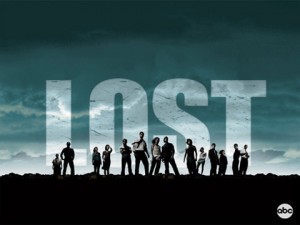We have come to the end of this discussion.
In past entries I have argued that Lost has all of the essential characteristics of the Gothic, that its colonial cultural critique is fundamentally Gothic, and that it uses a Gothic vocabulary for sharing the mysterious through the supernatural. All that is left is to define Gothic.
We outgrow definitions; at some point our idea of what a thing might be becomes more important than our convictions of what it is, and the cutting-edge of art usually lives in such a space. The critical acclaim for Lost has as much to do with genre and style as it does with the show’s eclectic perspective and its broad range of subjects.
So what is the importance of definitions if they are going to be constantly changed, revised, and discarded? If the best and most daring art is caught up in this challenge?
The answer is that if we want to talk about anything with specificity, we need to be able to rely on definitions, even if we acknowledge their limits. In my discussion of Lost, I have gone back, earlier than Conrad, earlier than Stoker and Shelley, to Beckford and Radcliffe, two of the earliest of Gothic writers, creating their best work at the time of the French Revolution. Now it is clear that these affinities do not dampen the revolutionary appeal of Lost. What Lost has done is new to television, new to narrative structure, and maybe even new to storytelling. And yet the affinities stand.
The examination is useful on three fronts.
First, it tells us what parts of a definition are superficial and unnecessary… these are often the “easiest” to grasp and therefore the most universally understood. So: musty castles, damsels in distress, secret passages, the undead… these things are not necessary to the Gothic. If they have outgrown their relevance (and some of them have) then they may be discarded.
Second, it tells us whether a genre is still relevant. The success of Lost given its thoroughly Gothic attributes is a powerful testament the relevance of the Gothic today.
Third, it tells us what is most important in a genre. And this is central not just an understanding of Lost and the Gothic, but to the whole thesis of this blog: that the Gothic is bigger and more powerful than we understand. The Gothic is really about the inversion of power structures, the vigor of the unknown, and the struggle for ourselves.
These themes may or may not be timeless, but they’ve lasted for 300 years, and are likely to continue to be powerful questions far into our future.




Well Connor, I see that I came late to the party. The discussion, comments, opines and so on have been interesting and the most telling and poignant attempt to place Lost in a genre that best fits. Until you emailed me and asked me to join in this conversation a month ago, I really did not give any thought re: Was Lost Gothic? I, as many other million viewers who have returned to it like a battered wife throughout the years of the series with all the mysteries, answers to questions/questions to answers, inconsistencies, plot and lack of plot did not even think of Gothic as a genre to describe this series to the masses when people wanted to know about that show about the plane crash, the island, a polar bear? and etc.
Given time to take a step back and look at Lost as a whole, indeed it is Gothic. In fact I’m of the opinion that its a gothic series in the same vein of Batman. Before someone rolls their eyes you have to understand that Batman has been published in comic books for over 60 years. Whether its a single issue, a six story arc or a writer/creator’s run over multiple years, Batman’s key element has been gothic (if you ignore the science fiction arcs of the 70s, however the current writer has been bringing these elements back into his current storylines and someone squeezes out a very interesting tale, b.i.d.) and like Lost it has arcs and moments in the series where the reader, characters and sometimes the creators have stopped and said where are we going with this, only to be dismissed due to a variety of reasons much like the creators of Lost explained how certain seasons and episodes clearly did not have anything to do with the overall series and the finale.
Hi Levi,
Actually, this is a great point. I do agree that Batman is Gothic — albeit in a slightly different way than Lost. I felt the same way about Watchmen and — crap, I forget what it was called, but it was another graphic novel about superheroes living in a big city (only 1000 of those)… anyway, I don’t know enough about graphic novels to make this argument (maybe you could make it for me) but there is something about the form that lends itself specifically to the Gothic. In the case of Batman, this is done in a very traditional Gothic sense — darkness and destruction and all that. But a lot of other comics and graphic novels seem to use Gothic tropes in a more freewheeling way. The Gothic tradition has been very fertile ground for comic book writers and illustrators. Your thoughts?